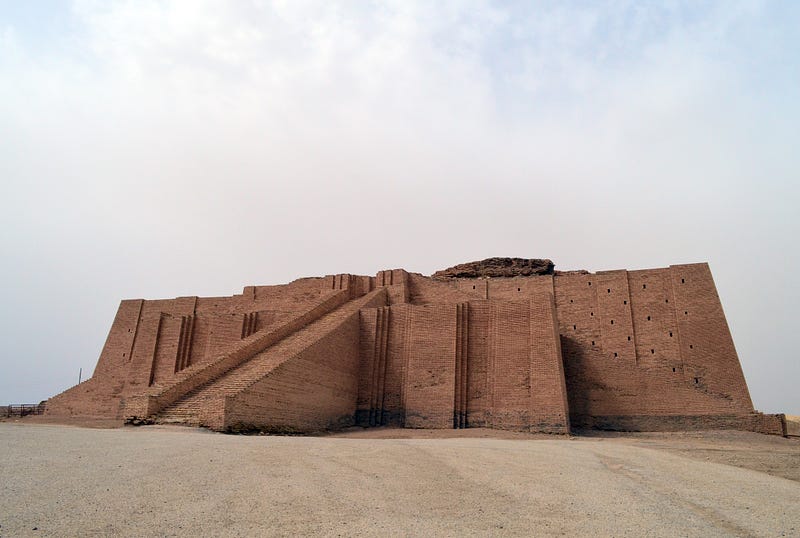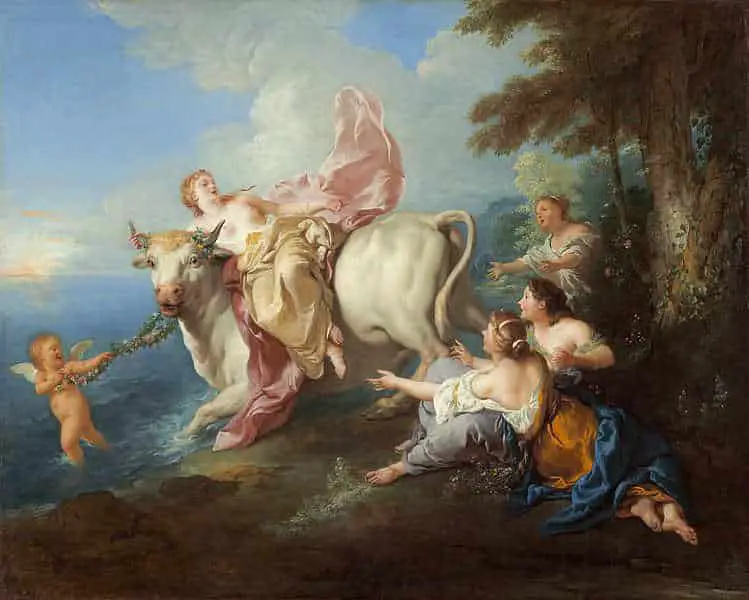 ince the creation of this publication, we have talked endlessly about the historical happenings of Europe, going as back as the first civilizations to conquer the continent. Although we have spoken a lot about this continent that many of us call home, we have never spoken about how the continent got its name.
ince the creation of this publication, we have talked endlessly about the historical happenings of Europe, going as back as the first civilizations to conquer the continent. Although we have spoken a lot about this continent that many of us call home, we have never spoken about how the continent got its name.
To find this out, we must go back to the origin of the Greek pantheon and the stories associated with it. Most importantly, the story of Zeus and the white bull.
Zeus and the white bull
As with many things in Greek mythology, our story starts with Zeus. The god of gods was known for his escapades in the world of the living, coming down from the mount of Olympus to influence the mortal plane as he saw fit. This was the case when he saw the daughter of Agenor, the king of Phoenicia.

Zeus was so impressed by the woman’s beauty that he decided that he must go down and woo her. As he came down from Olympus, he transformed himself into a white bull, a rare and beautiful sight that many attributed to the influence of gods. Once Zeus met the daughter of the king, he abducted her by putting her on his back and headed toward the island of Crete.
There the daughter, whose name was Europa, gave birth to three sons of Zeus. Minos (who would later become the king of Crete), Rhadamanthys ( who would become the king of the Cyclades Islands), and Sarpedon (who would become the king of Lycia). After this, Zeus would leave Europa on Crete, where she settled down and married Asterius, the king of Crete at the time, who took her now fatherless sons under his wing. Europa would be worshipped by the island’s inhabitants leading to her name spreading across the Agean sea.
Europa’s name would become closely associated with the earth, with some accounts of Ancient Greece even describing Europa as being named the goddess of the earth. As such, her name became widely used to describe what we now know as Europe when maps started to partition Europe as a continent apart from all other landmasses around it.
Other theories
Linguists point to other theories about the provenance of Europe’s naming. Many point toward Greece once again and put forward the theory that the name Europe comes from two Greece words, εὐρύς (Anglicised: eurys), which means wide, and ὤψ (Anglicised: ops), which means either face or eye depending on its use.
Together εὐρύςὤψ means “wide-gazing,” a name that many arrived to due to Greek maritime experience on the Mediterranean sea, which they as saw as being stretched as wide as the eyes could see.
Another theory points to the civilization of Mesopotamia and the language they used as the roots for the name. In the language of the civilization, specifically Semitic Akkadian, the word for ‘sunset’ was erebu and the word for ‘sunrise’ was asu. Linguists point towards this as the provenance of the word Europe as Europe was west of the old Mesopotamia empire, thus the name ‘erebu’ being used to describe it as well as Asia being east of Mesopotamia leading to the theory of the etymology of the name for Asia, namely the Semitic Akkadian ‘asu’, being put up as an option.

The exact provenance of the etymology of Europe is still debated by many scholars as the reference of the continent being referred to as Europe goes back to times when records weren’t kept as accurately as we do today. As such many of the theories of the etymology of Europe are just guesses. Without a new revolutionary discovery, we might never know the exact point Europe started being called Europe.

Student of Philosophy, Politics and Economics. History fanatic. Contact: aneculaeseicg@gmail.com





